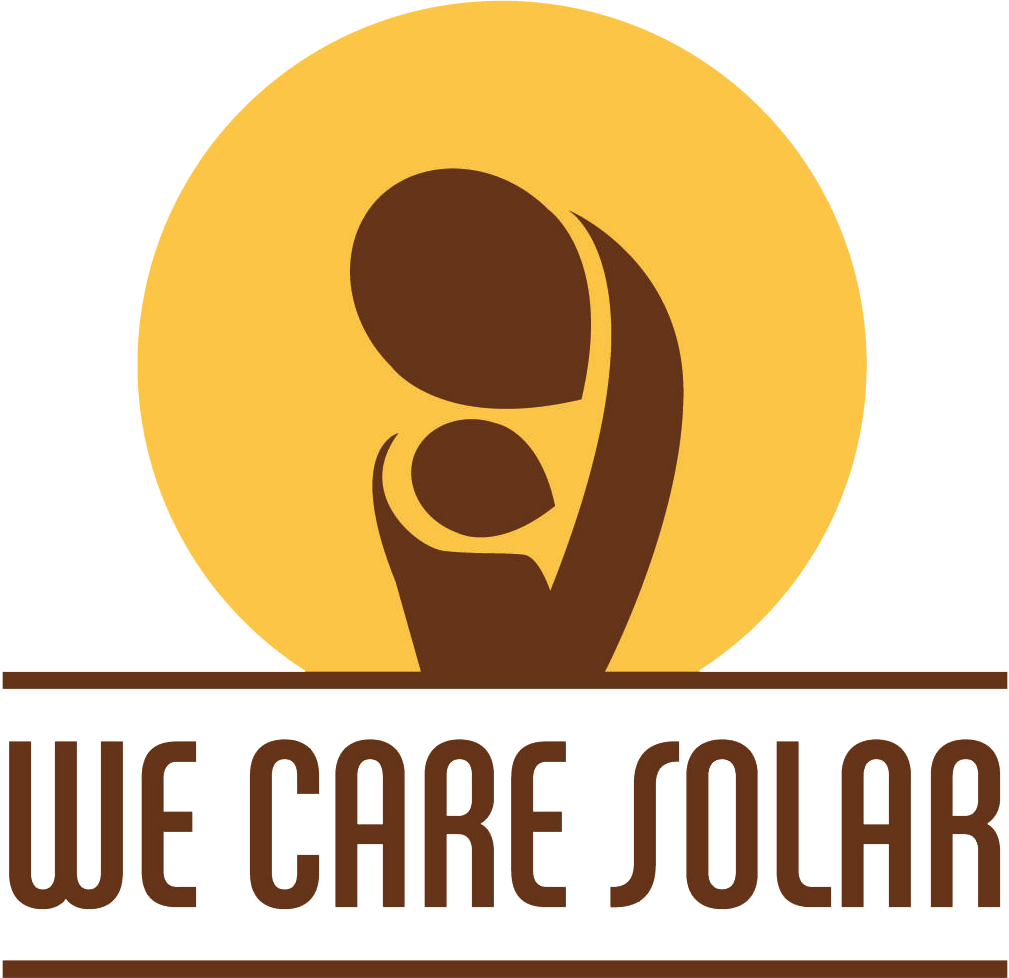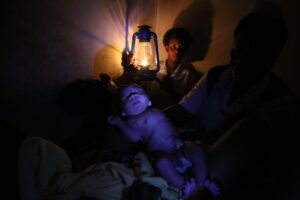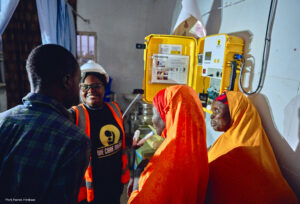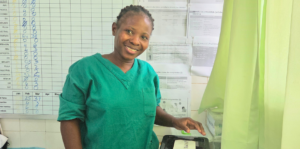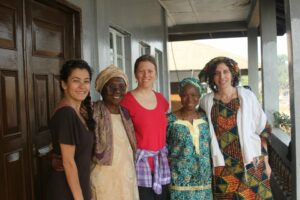 A very excited Isha Daramy-Kabia called me from Sierra Leone today. Isha is a midwife I met in December through the Global Women’s Leadership Network and the driving force behind our recent excursion to Sierra Leone.
A very excited Isha Daramy-Kabia called me from Sierra Leone today. Isha is a midwife I met in December through the Global Women’s Leadership Network and the driving force behind our recent excursion to Sierra Leone.
If you ever meet Isha, you’ll learn that it’s just about impossible to turn her down. Isha has impeccable clinical skills, years of experience in mobilizing communities to improve maternal and child health, a regal demeanor, and an unwavering passion for reducing maternal mortality. Within days of meeting her, she had contacted the Sierra Leone Ministry of Health and UNFPA to arrange for my visit. And sure enough, in late January, within weeks of our first encounter, I was boarding a plane, headed to Sierra Leone to pilot a Solar Suitcase program.
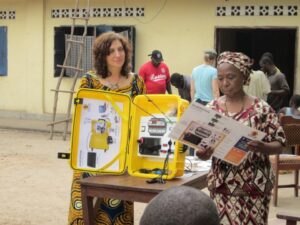 Accompanying me on this trip was an experienced photovoltaic instructor from Solar Energy International, Carol Weis, and a talented documentary filmmaker, Lisa Russell.
Accompanying me on this trip was an experienced photovoltaic instructor from Solar Energy International, Carol Weis, and a talented documentary filmmaker, Lisa Russell.
The health officials with whom we met grasped the significance of our easy-to-use solar power systems. Sierra Leone has one of the highest maternal mortality ratios in the world. Most of Sierra Leone’s 1,120 rural health centers have NO electricity whatsoever, making it difficult to deliver critical services, particularly at night The country has uneven terrain, and rural health centers are often hard to reach. Bringing electricity to remote sites is not without its challenges.
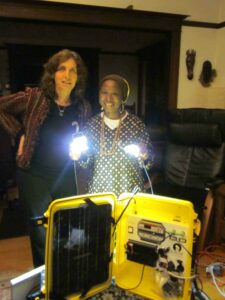 In a four-wheel drive, we crisscrossed the beautiful countryside, past lush fields, mountainous backdrops, and tropical trees, When we arrived at villages, the local women hugged us and beamed with delight – our Solar Suitcases were often the FIRST electricity for the entire village! On several occasions were were greeted by communities who showed their excitement about the Solar Suitcase by singing and dancing, inventing lyrics about our mission. “Welcome!” they chanted in Krio. “You have brought light. Now we can get treatment.”
In a four-wheel drive, we crisscrossed the beautiful countryside, past lush fields, mountainous backdrops, and tropical trees, When we arrived at villages, the local women hugged us and beamed with delight – our Solar Suitcases were often the FIRST electricity for the entire village! On several occasions were were greeted by communities who showed their excitement about the Solar Suitcase by singing and dancing, inventing lyrics about our mission. “Welcome!” they chanted in Krio. “You have brought light. Now we can get treatment.”
Carol Weis led the solar installations, engaging dozens of villagers in the rooftop installations, wiring, and equipment mounting. Sometimes communities would craft a ladder especially for our project and we sensed the joy and pride that came from their involvement. Isha and I taught classes to health workers, covering Solar Suitcase operation and maintenance, basic obstetric skills, and use of the fetal dopplers we provided. Often our classes gained an added audience of children and elders, equally eager to learn about our solar powered devices. The highlight of our trip was when the Minister of Health and Sanitation herself – the honorable Minister Zainab Bangura – joined us for a twilight Solar Suitcase class at one remote health facility.
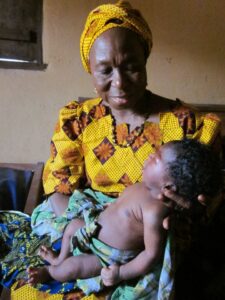 This week, Isha returned to the clinics to follow up on our installations. “It’s fantastic!” she bubbled. “Everything is working so well…Pregnant women are arriving earlier in labor, giving the health providers more opportunity to provide labor care. More women are coming for skilled deliveries. Even the TBAs (traditional birth attendants) are coming. The light is so bright, it gives a transformation of the village.”
This week, Isha returned to the clinics to follow up on our installations. “It’s fantastic!” she bubbled. “Everything is working so well…Pregnant women are arriving earlier in labor, giving the health providers more opportunity to provide labor care. More women are coming for skilled deliveries. Even the TBAs (traditional birth attendants) are coming. The light is so bright, it gives a transformation of the village.”
On this trip, we demonstrated that rural health workers can quickly learn basic solar electricity, that a rugged entry-level solar electric system can be easily installed in remote health centers, and that communities can become instant partners in our efforts to reduce energy poverty and promote safe motherhood. But this is just the beginning…and we hope that one day we will fulfill Isha’s dream to ensure that all the labor rooms in Sierra Leone have reliable lighting.
